12th National Public Health Conference
Panel Discussion
Panel Discussion 1
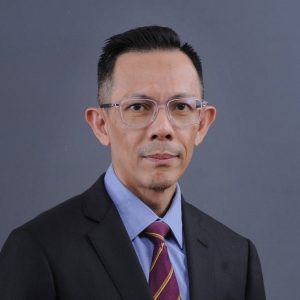
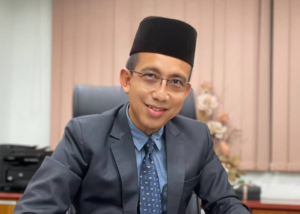


AI in Public Health: Bridging Promise and Practice – A Critical Dialogue
Moderator
Professor Dr. Kamarul Imran bin Musa
Professor of Epidemiology and Statistics, School of Medical Sciences, Universiti Sains Malaysia
Professor Kamarul Imran Musa is a medical epidemiologist and VK7 Professor of Epidemiology and Statistics at the School of Medical Sciences, Universiti Sains Malaysia (USM). In addition to his academic role, he serves as the Research Coordinator for Clinical Science and Health and heads the faculty’s Digital Health Unit. A renowned public health physician, he is also a Fellow of the American College of Epidemiology (FACE).
Professor Kamarul has authored or co-authored over 180 SCOPUS-indexed publications, with more than 85,000 citations and an h-index of 51. Recognised among the top 2% of most cited researchers globally, his scholarly contributions have had significant impact. He has successfully supervised eight Doctor of Public Health (DrPH) and five PhD candidates.
His core interests include epidemiological and statistical modelling, alongside the integration of artificial intelligence in healthcare. He has authored two books on data analysis and modelling and regularly leads postgraduate-level courses in epidemiology and applied statistics at all levels. Through his research and teachings, Professor Kamarul continues to drive the evolution of digital health and data-informed public health policy in Malaysia.
Panellist 1
Prof. Dr. Jamalludin bin Ab Rahman
President of the Malaysian Public Health Physicians’ Association; Professor and Dean at the Kulliyyah of Medicine, International Islamic University Malaysia
Dr Jamalludin bin Ab Rahman is a Professor and Dean at the Kulliyyah of Medicine, International Islamic University Malaysia (IIUM), Kuantan Campus. He currently serves as Chairman of the Malaysian Public University Medical Deans Council and President of the Malaysian Public Health Physicians’ Association.
A medical doctor by training, he began his service with the Ministry of Health Malaysia in 1995 before joining the university in 1999. He is a specialist in epidemiology and biostatistics, with extensive experience as a consultant for major national health surveys, including The Malaysian Cohort (2005), the National Health and Morbidity Survey III (2006), and the National Oral Health Survey for Adults (2010).
He is widely recognised for his expertise in complex survey sampling and multivariate analysis. He is a Fellow of the Malaysian Public Health Physicians’ Association and a member of the School of Public Health under the Academy of Medicine, Malaysia. His academic interests include research methodology, demography, and computational biostatistics within the field of bioinformatics.
Panellist 2
Dr. Rajendra-Prasad Yadav
Coordinator, World Health Organization, Western Pacific Regional Office, Manila, Philippines
Dr Rajendra-Prasad Yadav is a distinguished public health professional with over three decades of experience in communicable disease control and health systems strengthening. Currently serving as Coordinator at the World Health Organization (WHO)’s Western Pacific Regional Office, he leads the transformation of primary health care with a focus on digital innovation and AI-driven solutions. His journey began as a medical lecturer in Mumbai, followed by key WHO roles across India, Papua New Guinea, Cambodia, and the Philippines.
Dr Rajendra has played pivotal roles in national and regional responses to tuberculosis, integrating community engagement with strategic policy-making. His leadership as Acting WHO Representative and Team Lead in the Philippines has shaped multi-sectoral collaborations and digital surveillance tools, improving health outcomes. He holds a medical degree in Preventive and Social Medicine from Mumbai University and has authored over 25 peer-reviewed publications, including studies on TB, HIV, dengue, and health system financing.
A passionate advocate for people-centred care, Dr Rajendra combines field expertise with a visionary approach to public health, ensuring inclusive, data-informed responses to emerging health challenges. His work continues to impact lives across Asia and the Pacific, making him a respected leader in global health.
Panellist 3
Dr. Nuraidah Mohd Marzuki
Deputy Director and Head of the Health Informatics Centre, Planning Division, Ministry of Health Malaysia
Dr Nuraidah Mohd Marzuki is a public health medicine specialist with over 20 years of experience spanning clinical care, digital health, and health systems leadership. Her journey in digital health began in 2003 at the Ministry of Health’s Telehealth Unit, where she developed a longstanding commitment to integrating technology in healthcare delivery. Since then, she has held various strategic roles within the Ministry of Health, driving innovation and systemic reform.
In 2017, as Senior Principal Assistant Director of the Telehealth Division, she led the nationwide rollout of the Malaysia Health Information Exchange (MyHIX 2.0), a major initiative to enhance data integration and interoperability across Malaysia’s healthcare system. She currently serves as Deputy Director and Head of the Health Informatics Centre, where she oversees the strategic development of the Malaysian Health Datawarehouse (MyHDW), the national central repository for health data from both public and private sectors.
Dr Nuraidah has contributed to numerous academic publications in health informatics and public health. Her expertise includes policy analysis, data governance, and system development, with a strong focus on evidence-based decision-making and digital transformation. Through her leadership, she continues to shape the future of Malaysia’s healthcare ecosystem using data-driven strategies.
Panel Discussion 2
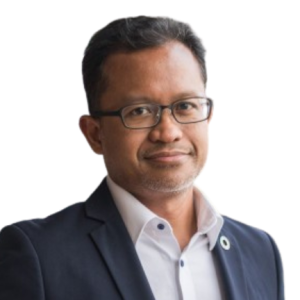
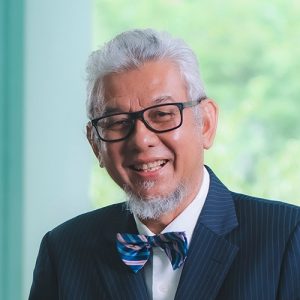
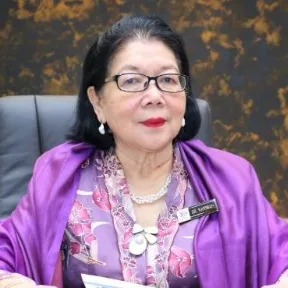
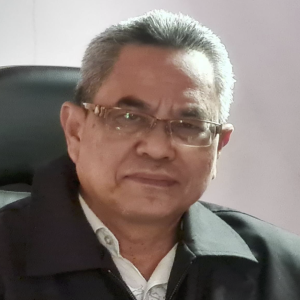
Leadership in Public Health
Moderator
Dr. Feisul Idzwan bin Mustapha
Director of the Perak State Department of Health
Dr Feisul Idzwan bin Mustapha is a leading public health physician in Malaysia, recognised nationally and internationally for his work in the prevention and control of non-communicable diseases (NCDs). He is currently the Director of the Perak State Health Department, where he oversees the implementation of all health and medical programmes.
With over two decades of experience, Dr Feisul has held multiple leadership roles in Malaysia’s Ministry of Health, including serving as Deputy Director of the Disease Control Division, where he helped shape Malaysia’s national strategies for the prevention and control of NCDs. His influence extends beyond Malaysia through his contributions to global health bodies, including serving as a member of the World Health Organization’s Scientific and Technical Advisory Group for NCDs and the Policy Advisory Group of the World Cancer Research Fund International.
His international experience includes work at the Steno Diabetes Center in Copenhagen, where he oversaw the planning, implementation, and evaluation of the Steno REACH Certificate Course in Clinical Diabetes Care in Malaysia.
He is widely respected for his thought leadership and public health advocacy. Dr Feisul is a Fellow of the Academy of Medicine of Malaysia and has received several accolades, including the HP Gold Standard Award for Policy Maker of the Year.
Panellist 1
Prof. Datuk Dr. Lokman Hakim bin Sulaiman
Director of the Institute for Research, Development, and Innovation (IRDI) and Deputy Vice Chancellor for Research, IMU University
Professor Datuk Dr Lokman Hakim bin Sulaiman is a highly respected public health expert with over 33 years of service in Malaysia’s Ministry of Health, culminating in his appointment as Deputy Director General of Health (Public Health). He holds a medical degree and a PhD in Medical Parasitology from Universiti Kebangsaan Malaysia (UKM), a Master of Public Health from the National University of Singapore (NUS), and a postgraduate diploma in Applied Parasitology and Entomology from SEAMEO-TROPMED.
He is a Fellow of the Academy of Sciences Malaysia, Academy of Medicine of Malaysia and Singapore, and the Public Health Physician Association of Malaysia. He also holds honorary appointments with the Academy of Family Physicians Malaysia and the Malaysian Nutrition Society. Datuk Lokman has represented Malaysia at numerous global health platforms, including the United Nations General Assembly and World Health Assembly, and served as a consultant for World Health Organization and SEAMEO-TROPMED Network.
Following retirement from public service, he joined IMU University as a Professor of Public Health. He currently serves as the Director of the Institute for Research, Development and Innovation (IRDI) and Deputy Vice Chancellor (Research). Building on his long standing expertise in vector-borne disease epidemiology, he has published 93 scientific papers and delivered over 80 invited presentations.
Panellist 2
Dato’ Dr. Narimah Awin
Former Regional Advisor (Maternal and Reproductive Health), Regional Office of the WHO for the South East Asia Region
Dato’ Dr Narimah Awin is a distinguished public health physician and former Director of Family Health Development at Malaysia’s Ministry of Health, a role she held until her retirement in 2007. With decades of expertise in maternal and reproductive health, she has shaped national strategies and guided international policy throughout her career.
Following her retirement from the Ministry, Dato’ Narimah served as Regional Adviser for Maternal and Reproductive Health at the World Health Organization (WHO) in both the Western Pacific and South-East Asia Regional Offices, retiring from WHO in 2013. Between 2013 and 2018, she continued to contribute as an international consultant for WHO and UNICEF in Myanmar, supporting maternal and reproductive health programmes during critical development phases.
From 2019 to June 2020, she served as Chairperson of Malaysia’s National Population and Family Development Board (LPPKN), providing strategic oversight in family planning and population health. Between 2020 and 2024, she was appointed as the Technical Advisor for Sexual and Reproductive Health (SRH) at United Nations Population Fund (UNFPA) Malaysia, offering guidance on rights-based, inclusive approaches to SRH policy and programming.
Dato’ Narimah’s lifelong commitment to improving reproductive health outcomes continues to influence public health policy and practice across Malaysia and the wider region.
Panellist 3
Dato’ Dr. Zainal Ariffin bin Omar
Past President of the Malaysian Public Health Physicians’ Association Founder and Chairman of VCEE19 (Volunteers for Community Engagement and Empowerment for COVID-19)
Dato’ Dr Zainal Ariffin bin Omar is an accomplished public health physician with over 35 years of service in Malaysia’s healthcare system. He is the Founder and Chairman of VCEE19 (Volunteers for Community Engagement and Empowerment for COVID-19), a community initiative under the Malaysian Public Health Physicians’ Association (PPPKAM) and Pertubuhan Kesihatan Awam Malaysia (PKAM). He was conferred the title Fellow of Public Health Medicine Malaysia and served as the past President of PPPKAM. From 2016 to 2019, he was an elected member of the Malaysian Medical Council.
Dato’ Zainal obtained his medical degree from Universiti Kebangsaan Malaysia in 1982, followed by his Master of Public Health from the University of the Philippines in 1985, and subsequently completed his MSc in Epidemiology from the London School of Hygiene and Tropical Medicine in 1992. He held numerous senior public health roles, including serving as Director of State Health Departments and Deputy Director of the Disease Control Division (NCD) with the Ministry of Health (MOH), Malaysia. He also served at the World Health Organization Western Pacific Regional Office as Consultant, where he contributed to regional strategies for non-communicable diseases (NCDs) and diabetes prevention.
His accolades include MOH Excellence Service Awards, the Gold Standard Policy-Maker Award (2013), and “Tokoh Kesihatan Awam” from PPPKAM.



